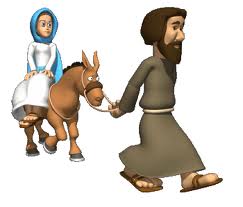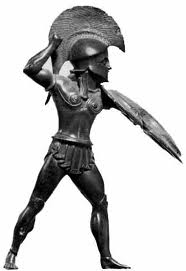The Principle of Pilgrimage
 Tuesday, October 11, 2011 at 6:00AM
Tuesday, October 11, 2011 at 6:00AM Some of the festivals of Leviticus 23 are designed to be pilgrimage festivals. Exodus 34 tells us:
23 Three times a year all your men are to appear before the Sovereign LORD, the God of Israel. 24 I will drive out nations before you and enlarge your territory, and no one will covet your land when you go up three times each year to appear before the LORD your God.
So for three festivals—Passover, Pentecost, and Tabernacles—everyone was to leave their home and go to a pilgrimage site. (We will talk soon about what the Bible calls "the place where God puts his name.")
While the word "all" is used, if you think about it, it is obvious that not all went every year. You cannot leave your sheep unattended for ten days. As a rancher in modern times this was possible and I did so, but in the ancient world there were no barb wire fences. (Of course I did have workers not interested in festival observance, one of whom lived next door to my ranch.) Someone had to remain home. No doubt there were agreements and this burden was shared.
 I doubt that the old men who were frail went either. Caregivers would remain home as well. In most cases pregnant women would also remain at home. Mary the mother of Jesus is often pictured riding a donkey to go to Jerusalem. This was probably a pilgrimage festival that the Roman government used to take the census. Most ancient Israelites probably would not have an animal to ride. (It is generally recognized that the family of Jesus was a little more well-to-do, and they would probably have had an animal.) So women would remain home if close to their due date, or if they had a small infant. I realize that Mary is a counter example to what I am saying here, but I just cannot see too many ill, old, or pregnant women walking long distances. The distance from Nazareth to Jerusalem is about 70 miles (probably at least a two day journey), and it was uphill both ways.
I doubt that the old men who were frail went either. Caregivers would remain home as well. In most cases pregnant women would also remain at home. Mary the mother of Jesus is often pictured riding a donkey to go to Jerusalem. This was probably a pilgrimage festival that the Roman government used to take the census. Most ancient Israelites probably would not have an animal to ride. (It is generally recognized that the family of Jesus was a little more well-to-do, and they would probably have had an animal.) So women would remain home if close to their due date, or if they had a small infant. I realize that Mary is a counter example to what I am saying here, but I just cannot see too many ill, old, or pregnant women walking long distances. The distance from Nazareth to Jerusalem is about 70 miles (probably at least a two day journey), and it was uphill both ways.
 Even though the passage I quoted implies that one should not worry, it is also likely that some men remained home to watch over things. There was no standing army in ancient Israel, the closest comparison I can think of is a militia. Anciently this was called a hoplite politeia, a citizen solder. Although it is doubtful that the Israelites were disciplined and organized enough to fight in phalanxes. Nor could the average militia member in Israel have much in terms of armor. No doubt there were agreements and this burden was also shared.
Even though the passage I quoted implies that one should not worry, it is also likely that some men remained home to watch over things. There was no standing army in ancient Israel, the closest comparison I can think of is a militia. Anciently this was called a hoplite politeia, a citizen solder. Although it is doubtful that the Israelites were disciplined and organized enough to fight in phalanxes. Nor could the average militia member in Israel have much in terms of armor. No doubt there were agreements and this burden was also shared.
With the number of security issues associated with a pilgrimage festival, it took a lot of faith to leave everything behind in the hands of a small group that would be insufficient for anything more than common banditry.
In modern times the pilgrimage aspect of these festivals has been downplayed. There are many practical reasons why this is so. As a long time pilgrimage festival observer I can attest to the cost. Another issue is that many schools frown on their students suddenly leaving for 10 days to attend a religious gathering. Too many unexcused absences and the truant officer may come to see you.
Even with the difficulties of a pilgrimage festival I feel that they are important. My own tradition has a major emphasis on a single pilgrimage festival centered on Tabernacles. This is the festival that I am planning for right now. It will involve a three day trip from California to Branson, Missouri. I plan to leave after the Day of Atonement (Yom Kippur.) I should be on the road when you read this. There are closer places, in fact there is one close enough that I could stay in my own house with a 1 1/2 hour drive.
I think that having three pilgrimages a year, to fit into the pattern of the Bible, is best. I have sponsored springtime feasts in Branson over the years. Here is a link to one I sponsered in Springfield Mo. in 2007. I hope to do so here in California when finances permit.
The principle of the pilgrimage is central to my thinking on festival observance so I will continue to talk about it for two more days.

Reader Comments